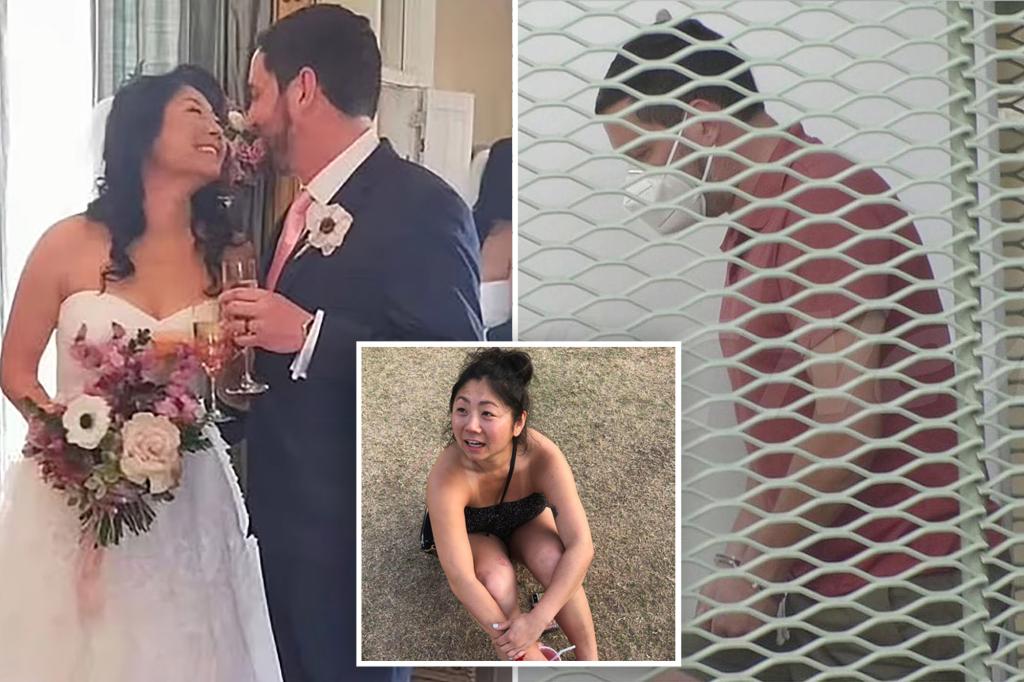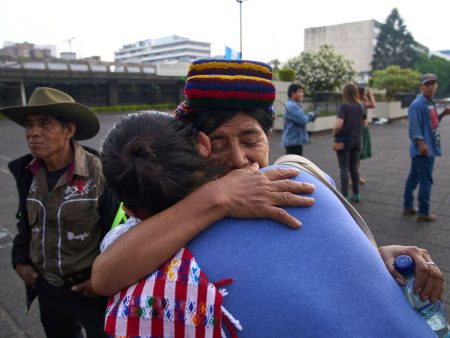Paragraph 1: The Tragic Honeymoon and Gruesome Discovery
Bradley Robert Dawson, a 40-year-old Tennessee man, was found guilty of murdering his newlywed wife, Christe Chen Dawson, 36, during their honeymoon at the exclusive Turtle Island Resort in Fiji. The horrific incident unfolded on July 9, 2022, when Christe’s lifeless body was discovered in their bungalow, lying in a pool of blood. The extent of her injuries, including blunt force trauma to the head, was so severe that her body could not be repatriated to the US. Instead, her family had to make the agonizing decision to cremate her remains in Fiji and bring them back to Memphis. The couple, who had married just five months prior in February 2022, had reportedly engaged in a heated argument the night before the tragedy, raising questions about the circumstances that led to Christe’s brutal death.
Paragraph 2: The Husband’s Flight and Capture
Following the discovery of Christe’s body, Bradley Dawson was nowhere to be found. A search ensued, and he was eventually apprehended a day later on a remote island a mile away from the resort, having kayaked there. Upon his capture, Dawson was found in possession of his passport and other personal belongings, leading authorities to believe he had intended to flee the island nation after committing the murder. This attempted escape became a crucial piece of evidence in the prosecution’s case, further incriminating Dawson. He pleaded not guilty to the murder charge, claiming that his wife’s death was an accident, a defense that would ultimately be rejected by the court.
Paragraph 3: The Trial and Verdict
Dawson’s defense attorney argued that the evidence presented did not support a conviction for murder with intention to kill or premeditation, suggesting the incident was an accident. However, High Court Justice Riyaz Hamza dismissed these claims, asserting that the prosecution had proven beyond reasonable doubt that Dawson was solely responsible for Christe’s murder. The judge highlighted the credibility and reliability of the prosecution’s witnesses, contrasting them with the defense’s version of events, which he deemed unbelievable. The judge also rejected the defense’s argument of provocation, concluding that the prosecution had successfully demonstrated Dawson’s guilt.
Paragraph 4: The Victim’s Life and the Perpetrator’s Background
Christe Chen Dawson was a recent graduate of the University of Tennessee Health Science Center and worked as a pharmacist at Kroger. Her promising life was tragically cut short by this act of violence. Bradley Dawson, at the time of his arrest, was employed in the IT department of Youth Villages, a non-profit organization. Following the incident, he was suspended from his position. The stark contrast between Christe’s dedication to healthcare and Dawson’s subsequent actions further underscores the tragedy of this case.
Paragraph 5: The Judge’s Ruling and Sentencing
Justice Hamza, in delivering the guilty verdict, emphasized the overwhelming evidence pointing to Dawson’s guilt. He meticulously analyzed the testimonies and evidence presented, concluding that the prosecution’s case was robust and credible. He dismissed the defense’s claims of an accident or provocation, concluding that Dawson had intentionally caused Christe’s death. The judge’s detailed explanation of his reasoning underscored the gravity of the crime and the weight of the evidence against Dawson. While the verdict brings a sense of closure, the sentencing remains pending, scheduled for January 27, 2025.
Paragraph 6: Awaiting Justice and Remembering Christe
As Bradley Dawson awaits his sentencing hearing, Christe Chen Dawson’s family and friends continue to grapple with the immense loss of a vibrant young woman whose life was tragically cut short. The guilty verdict offers a measure of justice, affirming the prosecution’s diligent efforts in pursuing the truth. The pending sentencing hearing will determine the extent of Dawson’s punishment for this heinous crime. While nothing can bring Christe back, the conviction serves as a reminder that those who perpetrate violence against others will be held accountable for their actions. The focus now shifts to the sentencing phase, where the court will determine the appropriate penalty for this devastating act of violence.










